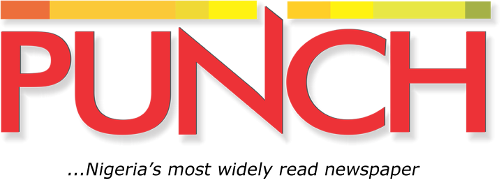
Retailers of Premium Motor Spirit, popularly called petrol, said on Friday that the recent petrol queues in parts of Abuja, Nasarawa and Niger, among others, surfaced because some private depot owners were hoarding the commodity as they awaited subsidy removal.
The Federal Government had last week suspended its plan to remove fuel subsidy in June this year. It also proposed to extend the subsidy removal implementation period by 18 months.
The retailers told our correspondent that petrol supply was disrupted by the depot owners, who got products from the Nigerian National Petroleum Company, were skeptical about the policies of the Federal Government on petrol subsidy.
They said the recent comments by government officials that petrol subsidy might stop in February or mid-2022 made some private depots hoard PMS, causing a reduction in supply and queues at many retail outlets.
The National Public Relations Officer, Independent Petroleum Marketers Association of Nigeria, Chief Ukadike Chinedu, said issues around subsidy removal were not taken lightly by operators in the downstream oil sector.
He said, “They (government) said they want to fully deregulate. That statement and similar ones, which some ministers made that by 2022 we are going to start full deregulation, made some PDOs decide to hoard or withhold their products.
“They (PDOs) are doing this to be able to match up with the cost of petrol when it rises above N300/litre upon full deregulation. Now, this became a bottleneck in terms of the chain of demand and supply.
Ukadike added, “So people who were taking petroleum products out of Lagos from the PDOs stopped a little bit to be able to look at the market value and their cost of logistics.
“That was what put a gap in the chain of distribution that led to the appearing and disappearing queues in many parts of Abuja and the north, as well as in some other locations of Nigeria.”
The IPMAN official, however, said once marketers were fully convinced of the government’s stance on subsidy, the distribution of petroleum products would return to normal.
He said, “But I also know that since some of the PDOs have started supplying and there is continuous movement of trucks from them in the riverine areas to some of our depots in the upland and those inland, things will normalise gradually.
“So, it is basically that policy statement on subsidy removal and the seeming unstable policies of government that led to a break in the chain of distribution of petroleum products across the country.”
Ukadike said the NNPC preferred to supply to private depots because supplying to them was cost-effective.
He said, “NNPC is still supplying to private depot owners and these are dealers who built their depots along the riverine areas, whereby NNPC can use vessels to supply these PDOs with products.
“So, it is easier for NNPC not to incur losses when using the PDOs than when they use the inland depots. This is because when they use the inland depots, you will find out that they (NNPC) will record shortage of products through the vandalism of pipelines and other concerns.”
Also speaking on the issue, the President, Petroleum Products Retail Outlets Owners Association of Nigeria, Billy Gillis-Harry, noted that recent statements on subsidy removal by government officials triggered panic among petrol users.
He said while some private depots were hoarding petrol, many users of PMS were also stockpiling the commodity.
Gillis-Harry said, “When announcements are made that subsidy might be removed and petrol price will increase, people will start buying fuel in their cars, take it home and drain it.
“And this is very dangerous because it can burn down the building. I’ve been able to consult with my national officers in different depots and they confirmed that the announcement on subsidy removal is causing panic and making some dealers to join in holding on to products.”
In November 2021, the government announced a target of mid-2022 to stop the subsidy regime, though the NNPC, through its boss, Mele Kyari, had said based on the provisions of Petroleum Industry Act, subsidy on petrol could stop in February 2022.
The Minister of Finance, Budget and National Planning, Zainab Ahmed, who announced the mid-2022 target in Abuja, had said, “The subsidy regime in the oil sector is unsustainable and economically disingenuous.”
She had said, “Ahead of the target date of mid-2022 for the complete elimination of fuel subsidies, there is a lot of work to do to eliminate the subsidy in a manner that would be consistent with the plans of the government and also to carry stakeholders and Nigerians along.
“We are working with our partners on measures to cushion the potential negative impact of the removal of the subsidies on the most vulnerable at the bottom of the pyramid, at least 40 per cent of the population.”
The NNPC, being the sole importer of petrol into Nigeria for the past four years, has been subsidising the commodity and has been bearing the subsidy cost.
Copyright PUNCH.
All rights reserved. This material, and other digital content on this website, may not be reproduced, published, broadcast, rewritten or redistributed in whole or in part without prior express written permission from PUNCH.
Contact: [email protected]





